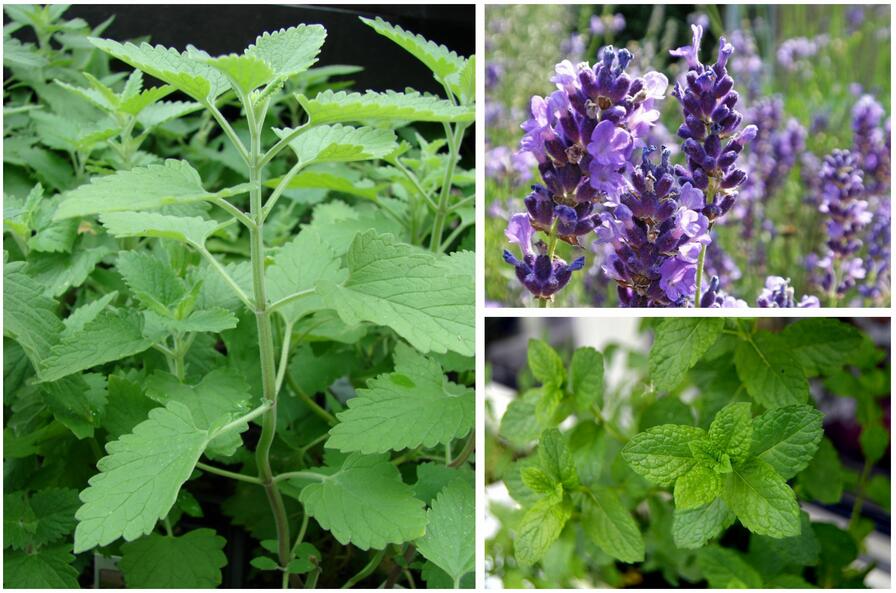Mosquitoes are not only annoying pests but can also transmit diseases. While chemical repellents are commonly used, many people are now turning to natural alternatives to repel mosquitoes. One effective and eco-friendly method is to incorporate mosquito-repelling plants into your garden. This article will explore the top mosquito-repelling plants, their benefits, and how to grow.

How Do Mosquito Repelling Plants Work?
Mosquito-repelling plants contain natural compounds that repel mosquitoes. These compounds include essential oils, such as citronella, pyrethrum, and nepetalactone, which insects find unpleasant or overwhelming. When these plants are present in your garden, they create a barrier that deters mosquitoes from entering the area.
Benefits of Using Plants Over Chemical Repellents
Using mosquito-repelling plants instead of chemical repellents offers several advantages. Firstly, it is a healthier and safer alternative for you, your family, and the environment. Chemical repellents may contain harmful ingredients, while natural plants are non-toxic. Additionally, mosquito-repelling plants serve a dual purpose by enhancing the aesthetics of your garden while providing functionality.
The 15 Most Effective Mosquito Repelling Plants
Here are 15 of the top plants for repelling mosquitoes naturally:
1. Citronella Grass
Citronella grass is popular in commercial bug sprays, candles, and lotions because its aromatic citronella oil naturally repels mosquitoes. Growing your own citronella grass provides an ever-present barrier against mosquitoes. It thrives in the sun and needs little maintenance to grow up to 6 feet tall.
There are two main citronella grass species:
- Cylindropuntia – Grows in clumps up to 5 feet tall. Hardy in USDA zones 10-11.
- Cymbopogon nardus – Grows up to 6 feet tall in loose clumps. Thrives in zones 9-11.
For maximum mosquito protection, plant citronella grass in pots or borders around seating areas, play structures, and high-traffic zones in your yard.
2. Catnip
Catnip contains a chemical called nepetalactone that is even more effective than DEET at repelling mosquitoes, according to research. Simply having catnip plants in your garden or in pots will help repel mosquitoes. You can also crush the leaves to release more aroma and mosquito-repelling power.
Catnip is easy to grow, tolerating most soils. You can give it full sun to partial shade and moderate water. It spreads readily through rhizome root structures. For strong mosquito repellency, rejuvenate plants every 2-3 years.
3. Lemon Balm
Lemon balm has a gentle lemon scent that helps mask human odors to confuse mosquitoes. Its small white flowers also attract beneficial pollinators to your yard. Lemon balm grows fast and spreads readily, making it excellent for creating mosquito barriers.
Lemon balm can take partial shade but thrives best in full-sun areas with rich soil and consistent watering. Cut back flowering stems to encourage leaf growth. Lemon balm may spread invasively, so plant where root expansion can be contained.
4. Lavender
Lavender’s light floral scent confuses mosquitoes’ ability to track humans. Growing lavender in your yard provides beauty, aroma, and bug protection. You can also crush the lavender flowers and rub the aromatic oils directly onto your skin for extra mosquito repellency.
Lavender prefers hot, sunny climates with well-drained soil. While drought tolerant, regular water in summer helps plants flourish. Deadhead spent flower stems to encourage more blooms.
5. Marigolds
Marigolds have a distinctive aroma from compounds called pyrethrum that repel mosquitoes. Their vibrant colors and blossoms also make them a beautiful, low-maintenance addition to gardens. Plant marigolds around gathering areas like patios or kids’ play spaces.
Choose marigold species like African or French marigolds for bright mosquito-repelling blooms all season. Marigolds thrive in full sun with moderate watering and average garden soils. Deadhead spent flowers to encourage more blooms until fall frost.
6. Mint
Mint makes a great addition around patios, play areas, or anywhere you gather outdoors. Its potent menthol aroma helps mask human scent trails. Just be sure to plant mint in contained areas or pots since it spreads aggressively.
You can opt for active mosquito-repelling mint varieties like peppermint or spearmint. Mint thrives in partial shade with moist soil and spreading room. Cut back rampant runners and stems to control spread. Replant mint patches every 3-4 years for best growth.
7. Rosemary

Rosemary is another aromatic herb that interferes with mosquito-sensing abilities. It adds delightfully fresh flavor to cooking as well while providing beautiful blue flowers in your garden. Rosemary thrives in hot climates with little watering needed.
Upright rosemary varieties work well for barrier plantings. Give rosemary full sun, little watering, and well-drained soil. Potted rosemary can be brought indoors in winter. Prune mature plants in spring to stimulate new growth.
8. Basil
Sweet basil varieties contain compounds like citronellol, eugenol, and linalool that repel mosquitoes. Growing basil adds a wonderful aroma to your yard and flavors to home cooking. Its purple flowers also attract bees and butterflies.
Grow mosquito-repelling basil varieties like sweet, licorice, lemon, or Thai basil. You can give basil full sun and rich soil with average watering. Pinch back flower heads to promote leaf growth. Bring potted plants indoors in colder weather.
9. Lemongrass
The sharp, citrusy aroma of lemongrass makes backyards and patios inhospitable environments for mosquitoes. Lemongrass grows in tall, grassy stalks up to 5 feet high, providing excellent visual barriers to keep mosquitoes away from gathering areas.
Lemongrass thrives in hot, humid climates in full to partial sun. It needs adequate water and drainage. Harvest stalks as needed by cutting near the soil line. Lemongrass may be grown as an annual in cold climates.
10. Sage
Sage has a strong scent from oils like thujone, cineole, and camphor that overwhelm mosquito sensing abilities. As a bonus, its edible leaves add delicious flavor when cooking. Just be sure to plant sage where its spreading roots won’t overtake other plants.
Common or tricolor sage are great mosquito-repelling varieties. Give sage full sun, well-drained soil, and moderate watering. Cut back flowered stems to promote leaf growth. Divide sage plants every 2-3 years to encourage new growth.
11. Bee Balm
Also called wild bergamot, bee balm has a fragrant aroma and bright scarlet-pink flowers that attract pollinators. Studies show bee balm oil is an effective mosquito repellent against several biting insect species. Plant bee balm in full or partial sun areas.
Bee balm thrives in moist, well-drained soil as perennials or annuals depending on climate. Deadhead spent blooms regularly to encourage new flowers until fall. Divide plants every few years to improve vigor.
12. Chrysanthemums
Chrysanthemums contain pyrethrin which gives them natural mosquito-repelling power. Plant these cheerful blooms in pots and borders to add color while keeping mosquitoes away. Chrysanthemums prefer full sunlight and grow as annual or perennial flowers depending on climate.
Rainbow, albino, and painted daisy chrysanthemum varieties all repel mosquitoes. Give them well-drained soil and full sun. Water more in summer for lush blooms. Remove faded flowers to prolong blooming into fall. Potted mums must be overwintered indoors.
13. Garlic

Garlic bulbs contain allicin and other compounds that are naturally repugnant and even toxic to mosquito species. Simply planting garlic around your yard helps drive mosquitoes away. As a bonus, you can use fresh-grown garlic for cooking!
Plant garlic cloves in fall about 2 inches deep and 6 inches apart. Best growth occurs in full sun with fertile, well-drained soil. Harvest bulbs when leaves turn brown in summer. Eat fresh or cure bulbs to prolong storage life.
14. Peppermint
The strong minty aroma of peppermint confuses mosquito senses. Peppermint thrives in partially shaded areas with rich soil and appreciates ample watering. Plant it around high-traffic spaces to create a mosquito-free zone.
To grow peppermint, you can use loose, humus-rich soil and consistent moisture, especially in summer. Start new plants from root cuttings to avoid having them spread invasively. Cut back flower spikes to lengthen the growing season.
15. Thyme
Thyme contains thymol oil that interferes with mosquito scent receptors and repels them. For maximum mosquito protection, you can plant different thyme varieties like creeping thyme between paving stones and patio joints. Thyme needs full sun and grows well in rock gardens or borders.
English, French, or lemon thyme are all great mosquito repelling choices. Thyme needs well-drained soil and full sun to thrive. Trim plants after flowering to prevent leggy growth. Thyme plays well with other Mediterranean herbs.






